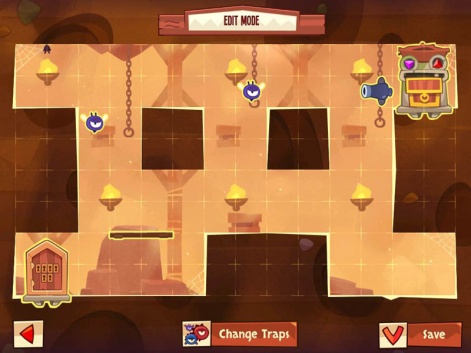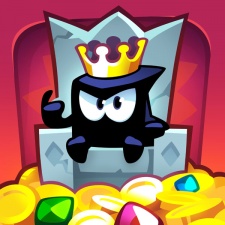Launched in early 2015, ZeptoLab's King of Thieves certainly stands out as something of an outlier in the free-to-play space.
Indeed, it's built on relatively hardcore platforming gameplay and user-generated content in the form of laying traps for would-be thieves.
Eugene Yailenko, the lead game designer on the project, bills it as "a F2P game that's different" as he addresses the gathered crowd at the GDC 2016 Free-to-play Summit.
Finding the balance
Finally released in February 2015 after 2 years in development, King of Thieves eventually found its audience with 24 million downloads.
It was, however, a difficult road up to this point, and a journey thats seen the game change dramatically.
"If you think the game is hardcore now, you haven't seen that first prototype," reflects Yailenko.
Knowing that a broad audience was the overall aim, this led the firm to enact a number of changes - including the reduction of all levels by 40% in size to fit the screen without scrolling, and a limited selection of traps to reduce the number of exploitative or unplayable dungeons.
The biggest departure from the original brief, though, was the reduced focus on user-generated content.
The game's not about being creative - it's very practical.Eugene Yailenko
Originally envisioned with LittleBigPlanet, Super Meat Boy, and Clash of Clans as influences and reference points, Yailenko had to reconsider this when players proved "too lazy" to engage with full editing tools.
The response was to pare the experience down to what players were finding fun: laying traps.
"The game's not about being creative," reflects Yailenko. "It's very practical; it's about defending your treasure."
Bleeding users
During soft launch, yet more lessons were learnt. Early signs were very bad, with a day 1 retention rate of 26% going down to mere 9% after 7 days.
Monetisation-wise, things weren't any better. "We were waiting four days for our first purchase," recalls Yailenko.
"After 16 months of development, we were very upset."

But what was the problem? Yailenko reveals that, due to the original menu design, 60% of players didn't try the multiplayer.
This was obviously awful for a game so focused on multiplayer, even though the other 40% were "really engaged."
Ring the changes
After clarifying, the impact was immediate - day 1 retention soared to 41%, while the day 7 rate incresed to a far healthier 20%. Players were still not spending, though.
If you're not embarassed by the first version of your product, you have launched too late.Eugene Yailenko
As an experiment, ZeptoLab responded by sharply increasing cost of IAPs - a move that increased lifetime value by 2.5 times, but also resulted in King of Thieves plummeting to a 2-star store rating.
"Players were not happy with such a sudden increase," says Yailenko. "We were glad it was only soft launch."
The restoration of the IAP pricing, coupled with the addition of league features, saw day 1 retention rise again to 45%, and day 7 to 23%. More importantly, it boosted LTV by ten times.
Yailenko's biggest takeaway is to urge developers to soft launch as early as they possibly can, having seen firsthand the impact it can have on your game design and understanding of how players are interacting with it.
Recalling some advice given to him earlier in his career, he concludes: "If you're not embarassed by the first version of your product, you have launched too late."






















